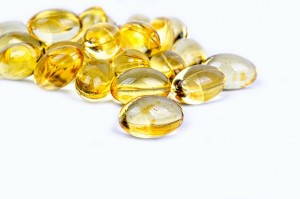Most of us enjoy growing older, right until the point that being old starts to be a problem. Why does our body grow old, and is there anything we can do to stop the aging process? Scientists are rushing to find the answers.
If you’re still alive, you’re growing older every day.
You may not notice it, but you are.
Can We Stop the Aging Process?
When we make that great shift out of our teenage years into our twenties, most of the changes we encounter about growing older are good.
When we are in our twenties, growing older means a lot more freedom and a lot of adventure. Physically, we are at our peak of perfection.
In our thirties, we are starting to enjoy many of the benefits of growing older as we accumulate more wisdom and in most cases, continue to have a body and a brain that’s still in great shape.
But there comes a time, perhaps in our fifth decade, or in our sixth, when growing older starts to have some negative effects we don’t really like.
We may not be as physically fit as we used to be. We start to get sags and bags. We get aches and pains. We may be showing some forgetfulness.
Our beautiful perfection of youth is gone.
Why do we age?
Over the centuries, people have often wondered how it is that our bodies grow and develop from a tiny fertilized egg, to a newborn baby, to a young child, then a teenager and, finally, a young adult. A huge number of very complex changes within our bodies must happen perfectly in order to achieve this.
Once we grow into our adult perfection, why can’t we just stay there? Why do we have to age?
And can we stop it?
Doctors and scientists used to take aging for granted. Scientists used to think that because aging was a natural process, there was no need to investigate it.
Now, as increasing numbers of baby boomers are turning fifty, anxious to hang on to some semblance of youth, more and more research is being devoted to the topic of aging.
Scientists are trying to find out how and why we age, and they are investigating possible ways to slow down the aging process, or perhaps even stop it altogether.
If new ways are found to extend physical and mental health for the aging population, the benefits to society will be enormous.
Although all of us want to live a long time, none of us wants to spend our final years in physical pain or suffering from mental decline.
Scientists have been able to identify some of the factors that influence the process of aging, and new knowledge is accumulating at a rapid rate. Dozens of theories to explain aging have been proposed, but it seems that aging is a very complex, and several processes are interlinked.
Here are some of the current theories about why we age:
Hayflick Limit Theory – Two scientists in the 1960’s noticed that many human cells would divide a limited number of times, then stop. If the cells were well fed, they divided faster. Body cells may have a built-in genetic program that tells them not to reproduce anymore.
Free Radical Theory – Free radicals are molecules or atoms that have an unpaired electron. In order to be electrically balanced, these molecules or atoms will grab an electron from a nearby atom, thereby creating another free radical, eventually resulting in a cascading chain of damage to cells and organs.
Free radical formation may not account for all the symptoms of aging, but it probably does play an important part in accelerating cellular damage. Free radicals are unavoidable. They are an inevitable consequence of living in a physical body. However, there are steps we can take to slow down free radical damage, such as avoiding pollutants, and eating a lot of fresh fruits and vegetables.
The Telomere Theory – Telomeres are special types of chemicals that seem to have some ability to protect the chromosomes inside our cells. Every time our cells divide, the telemeres become shorter and less able to protect the chromosome. This may explain why the cells eventually become damaged and die. Scientists are currently trying to find out how to repair telomeres and stop the damage to the cells.
Glycation – When proteins in your body react with excess blood sugar, the proteins become damaged. This process is known as “glycation”. These sugar-damaged proteins may contribute to the breakdown of many other systems in the body. People who have diabetes or problems with insulin resistance are particularly vulnerable to glycation damage because of abnormalities in their blood sugar levels.
If it turns out to be true that glycation plays a major part in causing the negative effects of aging, we may be able to slow it down by making sure we avoid excess blood sugar levels.
Here are some other factors that play a part in aging:
-We experience a steep decline in hormone production in our later years
-Our body becomes less efficient at detoxifying
-The DNA in our cells becomes damaged
-A life time of exposure to stress and environmental toxins in our air, food and water overwhelms our body’s repair systems.
These are some of the explanations for why we age, but it’s not a complete picture. At the present time, we don’t yet know all the reasons for this process. And so far, there is no single magic bullet to stop it.
If scientists can learn how to slow down the process of aging, we will be able to spend many more happy years enjoying our lives while maintaining our peak of physical perfection.
And that’s something to look forward to!
Click here for one of the very best anti-aging formulas on the market.
